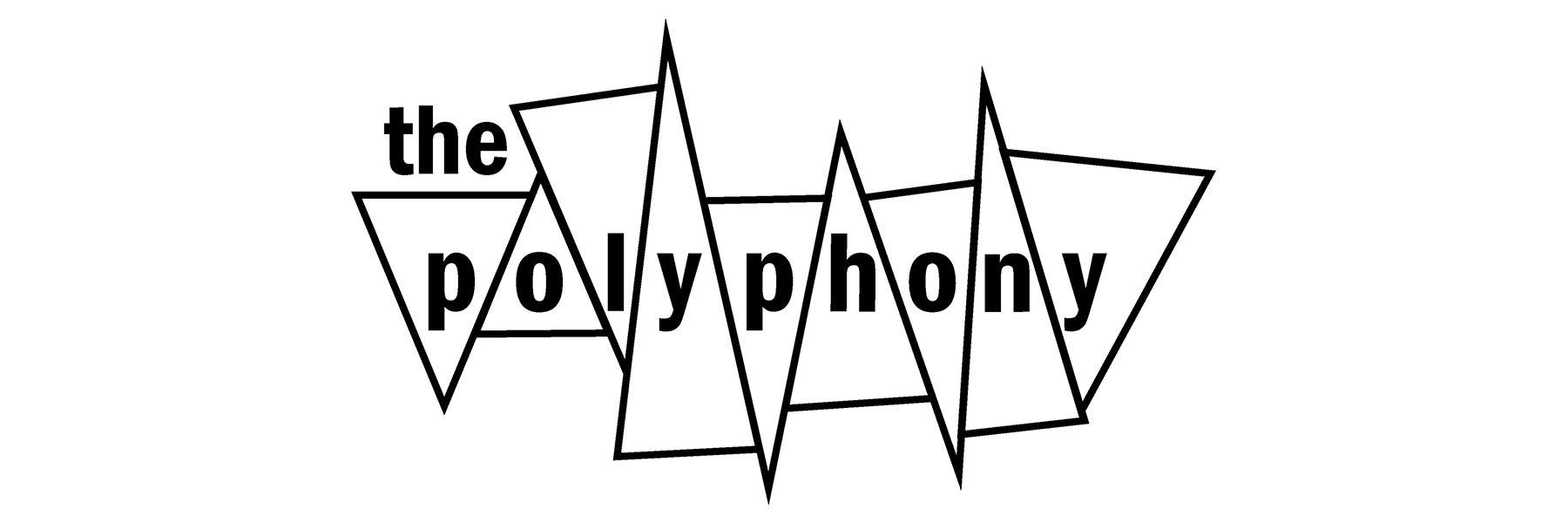
By Dr Jordan McCullough, Associate Editor at The Polyphony and Postdoctoral Research Fellow at the University of St Gallen, Switzerland
Established in 2023, The Polyphony’s ‘Multilingual MedHums’ series seeks to challenge ‘the Anglocentric nature of much medical humanities scholarship by showcasing the work of scholars based in and working on non-anglophone countries.’[1] The series encourages readers and contributors to engage with the rich entanglement of language and culture, as the media through which health and illness are lived and communicated, and to reflect on the significance of this intersection for their own research agendas and those of the wider field. Following the recent trajectory of other multilingual scholarship in the field, calling us in the direction of a global Medical Humanities,[2] the series seeks to push beyond the boundaries of the Anglosphere; introduce new research trajectories developing across the world; and demonstrate the value of multilingual and translational approaches for the future of the Medical Humanities. The ‘Multilingual MedHums’ series thus resonates with the ‘Reading Bodies’ project on multiple levels.
The series opened with Steven Wilson’s ‘Manifesto for a Multilingual Medical Humanities’. Born out of a need to address the ‘implied or assumed generality of a UK or US mainstream’ within the field,[3] Wilson’s contribution called for ‘a commitment to multilingualism in the medical humanities’ as a means to ‘[expand] the horizons of influence that frame much of our work’ and ‘further [diversify] the perspectives that are included.’[4] As Wilson rightly suggests, ‘a more multilingual medical humanities would incontrovertibly lead to a more comprehensive encounter with the voices and perspectives of diverse global populations’, and it is precisely this form of linguistic and cultural encounter that the series seeks to foreground.[5]
Following Wilson’s opening ‘Manifesto’, Claire Jeantils reflected on the ‘input, debates and challenges’ of French Medical Humanities.[6] What emerges strongly from this piece is the potential of France’s epistemological and pedagogical traditions to contribute to current debates in the field, while also engaging within and across a wider francophone Medical Humanities. Jeantils’s piece likewise highlights the value of cultural and linguistic sensitivity in addressing the entanglement of past, present and future forms of healthcare, particularly in the context of historic colonialism.
The next contribution focused on France’s near neighbour: Italy; however, Marta Arnaldi’s piece expands from an exclusive focus on Italy to a much broader concept of the ‘Italosphere’. As Arnaldi remarks, this notion of the Italosphere ‘complicates and complements Anglocentric medical humanities by endorsing its paradoxes’; yet ‘crucially, it also poses new ones.’[7] These tensions and gaps, she suggests, will allow us to develop new, translational and/or multilingual understandings of health and illness. Arnaldi also highlights the centrality of literature in the Italophone Medical Humanities, both as the seed from which the field has grown and a reminder of Italy’s rich cultural heritage. In this sense, her piece demonstrates the essential interdependence of language and culture in Medical Humanities research.

The Polyphony, an online platform for conversations across the Medical Humanities
We then turned our attention to the centre-east of Europe, to Hungary. In her piece, Eszter Ureczky points towards the creation of a post-socialist, post-COVID-19 and distinctly Central Eastern European Medical Humanities. By continually reckoning with the country’s recent past, the Hungarian Medical Humanities are seeking to better appreciate the ‘lasting impact of socialism on the [national] psyche and the country’s cultural production’.[8] In so doing, scholars are engaged in disentangling the cultural legacies of socialism and their impact on healthcare provision.
The fourth contribution focused on a country with four official languages: Switzerland. In this regard, as Marc Keller notes, Switzerland has a ‘particular potential’ to respond to Wilson’s aforementioned call.[9] While elements of this critical potential remain, at present, relatively untapped, Keller’s piece demonstrates the opportunities for scholars based in multilingual countries – when they accept to move beyond their monolingual silos – to contribute something far richer than any one language area could do alone. Such scholarship might thus allow us to visualise what Marta Arnaldi and Charles Forsdick see as the ‘inherently translational nature of medical humanities’.[10]
Medical Humanities research and pedagogy in Finland was the subject of the next contribution. What strikes me here is the parallel between Avril Tynan, Anna Ovaska, and Åsa Slotte’s assessment of Finnish Medical Humanities and that previously discussed, in Switzerland. While less pronounced in Keller’s piece, Tynan, Ovaska and Slotte demonstrate the extent to which the linguistic divisions within the country have dictated the direction of Medical Humanities research, with certain languages seen to inhibit scholars’ ability to engage with wider research networks, while others are deemed essential to scholarly interaction.
The most recent contribution to the series is a piece by the ‘Reading Bodies’ PI, Katharine Murphy. As well as introducing this rich project, Murphy considers the value of including literary and historical perspectives in discussions of multilingual Medical Humanities.[11] The historical emphasis of the ‘Reading Bodies’ project offers a helpful counterpoint to the field’s predominant focus on the contemporary – and to a similar leaning in the Multilingual MedHums series. Murphy’s piece thus enriches the insights offered by the series, particularly through the historico-literary reflections it brings to bear.
In addition to these stand-alone contributions, the series has also played host to its first ‘takover’. In September 2023, ten colleagues, who went on to present their work at the ‘Translation and Medical Humanities Conference’, at the University of Oxford, shared their work in a ‘takeover’ of the platform. This ‘takeover’ offered insights into the richness and diversity of the contributors’ work, across media and historical periods, while also provoking methodological reflections on what it means to do Medical Humanities research in a translational way. After Marta Arnaldi and Charles Forsdick’s opening piece, the takeover addressed questions of theory and practice, engaged with human and non-human health and highlighted the potential of a translational framework to advance the critical endeavours of the field.
So, in the eight months that this series has been running, what have we learnt? Firstly, although it scarcely needs saying in the multilingual context of the ‘Reading Bodies’ project, it is clear that Languages do have something valuable to contribute to wider debates in the field of Medical Humanities. Beyond the mechanics of translation, attention to language and its respective culture(s) and cultural products provides opportunities to move away from monolithic ideas of health and illness. It also encourages us to develop and engage with ‘[an] adapted cultural vocabulary’, which might allow us to ‘think through care, health and medicine outside of the anglophone framework’[12] – a highly relevant consideration in a world where more than six billion people do not speak English.[13] Secondly, we have begun to uncover interesting connections between individual languages and the Medical Humanities research trajectories followed. In some countries, this is associated with the linguistic resonance of the terminology used to describe the field; in others, it is more a question of dominant and minority languages, with an apparent unwillingness of the lingua franca to accept and engage with linguistic diversity. Thirdly, notions of a multilingual and/or translational Medical Humanities allow us to acknowledge and embrace the other – ‘the foreign’, to refer back to Wilson[14] – to enter into that ‘other place’ with a willingness to attend to that which is unknown to us, historically, linguistically and culturally, despite its challenges.[15] Ultimately, it is this attentiveness to the other that has been and will be vital for the success of our field, and therein lies the value of this series.
Jordan McCullough is an Associate Editor at The Polyphony, where he leads the theme on Multilingual Medical Humanities. He is a Postdoctoral Research Fellow on European Research Council-funded ASSISTED project, based at the University of St Gallen, Switzerland, and he holds a Visiting Research Fellowship in the School of Modern Languages, Newcastle University, UK.
[1] ‘Projects: Multilingual Medical Humanities’, The Polyphony, https://thepolyphony.org/category/collections/
multilingual-medhums/ [accessed 31 January 2024].
[2] Piotr Blumczynski, and Steven Wilson, eds. The Languages of COVID-19: Translational and Multilingual Perspectives on Global Healthcare (Abingdon and New York: Routledge 2022); Narin Hassan and Jessica Howell, ‘Global Health Humanities in transition’, Medical Humanities, 48 (2022), 133-37, https://doi.org/10.1136/medhum-2022-012448; Anna Magdalena Elsner and Steven Wilson Elsner, ‘The languages and cultures of pain: Towards a global medical humanities’, Journal of Romance Studies, 22 (2022), 425–36, https://doi.org/10.3828/jrs.2022.24.
[3] Anne Whitehead and Angela Woods, ‘Introduction’, in The Edinburgh Companion to the Critical Medical Humanities, edited by Anne Whitehead, Angela Woods, Sarah Atkinson, Jane Macnaughton and Jennifer Richards (Edinburgh: Edinburgh University Press, 2016), pp. 1-31.
[4] Steven Wilson, ‘Manifesto for a Multilingual Medical Humanities’, The Polyphony, 30 May 2023, <https://thepolyphony.org/2023/05/30/manifesto-multilingual-medhums> [accessed 24 January 2024].
[5] Wilson, n. p.
[6] Claire Jeantils, ‘Les humanités médicales françaises: input, debates and challenges’, The Polyphony, 27 June 2023, <https://thepolyphony.org/2023/06/27/humanites-medicales-francaises> [accessed 24 January 2024].
[7] Marta Arnaldi, ‘Medical Humanities in the Italosphere’, The Polyphony, 28 July 2023, <https://thepolyphony.org/2023/07/28/medical-humanities-italosphere> [accessed 24 January 2024].
[8] Eszter Ureczky, ‘Kultúrorvostan; Medical Humanities in Hungary’, The Polyphony, 29 August 2023, <https://thepolyphony.org/2023/08/29/medical-humanities-hungary> [accessed 24 January 2024].
[9] Marc Keller, ‘Medizinische Geisteswissenschaften, Sciences humaines en médecine, Scienze umane mediche: Medical Humanities in Switzerland’, The Polyphony, 17 October 2023, <https://thepolyphony.org/2023/10/17/
medhums-in-switzerland> [accessed 24 January 2024].
[10] Marta Arnaldi and Charles Forsdick, ‘Medical Humanities’ Translational Core’, The Polyphony, 30 August 2023, <https://thepolyphony.org/2023/08/30/medhums-translational-core> [accessed 25 January 2024].
[11] Katharine Murphy, ‘Reading Bodies in European Literatures and Cultures’, The Polyphony, 20 February 2024, <https://thepolyphony.org/2024/02/20/reading-bodies> [accessed 14 March 2024].
[12] Jeantils, n.p.
[13] Patrick Adams and Fiona Fleck, ‘Bridging the Language Divide in Health’, Bulletin of the World Health Organization, 93:6 (2015), 365–66.
[14] Wilson, n.p.
[15] Susan Sontag, “Illness as Metaphor”, in Illness as Metaphor and Aids and its Metaphors (London: Penguin, 1991), p. 3.

